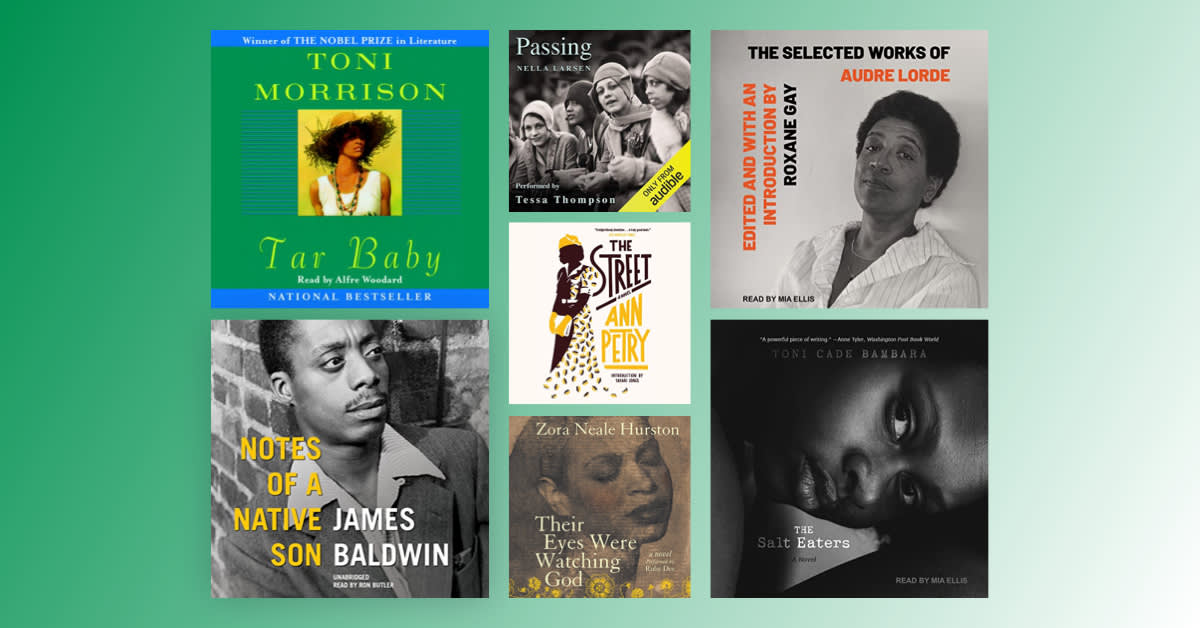Inspired by the true story of a Japanese steel-pan player who was murdered while attending carnival in Trinidad, Passiontide is more than a police procedural to find the woman’s killer; it’s a mission-driven manifesto with a fervent political agenda. In Passiontide, a musician’s murder on the morning after Carnival sparks a feminist uprising on the fictional Caribbean island of St. Colibri, where femicide is so prevalent—500 women killed in the past five to six years—that most residents ignore it. A group of local women stage a protest, drawing support from other women on the island who have also had enough.
Roffey’s vibrant take on the mystery novel is layered with righteous fury and civil disobedience that challenges the island’s institutionalized patriarchy and confronts the growing issue of violent crime against women. It’s a compelling listen that draws you in with complex characters and colorful native patois. As the daughter of Caribbean parents, I was honored to ask the Trinidadian-born Roffey about the real-life inspiration for her new novel as well as the meaning behind the title.
Margaret Hargrove: Monique, you are one of the Caribbean’s most versatile authors. What inspired you to write this story? And why did you want to tell this story now?
Monique Roffey: Passiontide is based on a true story, the murder of steel pannist Asami Nagakiya in Port of Spain, Trinidad, in 2016. I never forgot about this terrible case of femicide. Asami stuck with me for years as I watched and heard of other cases of women being murdered all over the world—today we hear of the tragic case of Rebecca Cheptegei, set alight and burnt to death. It’s a never-ending tally. In the UK a woman is murdered every three days. I wrote this book because fiction can bond us more to these dead women than a news story.
You’ve written seven novels, including your award-winning title The Mermaid of Black Conch, and a memoir. How is Passiontide different from your other books?
It’s more overtly political. It’s a protest novel.
Passiontide follows four women as they spark a revolution in the aftermath of a shocking event that takes place on a fictional Caribbean island. Which character did you enjoy writing the most? And/or is there a character that reminds you of yourself?
None of the characters remind me of myself but I think Gigi feels the strongest. She appeared in my imagination fully formed. Her red trilby, her long legs. Her bad attitude. I adore her.
What’s the meaning behind the title, Passiontide?
It’s the name for the final two weeks of Lent. A time of Christ’s "passion," or suffering. Asami was found dead on Ash Wednesday. So the novel moves onwards from this date into Lent, with this great Christian drama in the background. The drama of the narrative matches this background historical story.
Passiontide is performed by three amazing voice actors: Ami Okumura Jones, Burt Caesar, Martina Laird. Did you have any involvement in the casting of the audiobook? Can you share any details behind the narration?
Martina Laird happens to be a Trinidadian friend. Burt Caesar I’d met before and had narrated my Mermaid book for the BBC. They are a fantastic team. I have no connection to the third narrator, Ami Okumura. I think they’ve done a very good job. I hope listeners think so, too.
What do you hope listeners take away from this story?
I hope they will feel sad and also angry. Maybe younger feminists will be inspired, too. It’s not an easy read and wasn’t intended to be! I hope people feel moved. Passionate.




